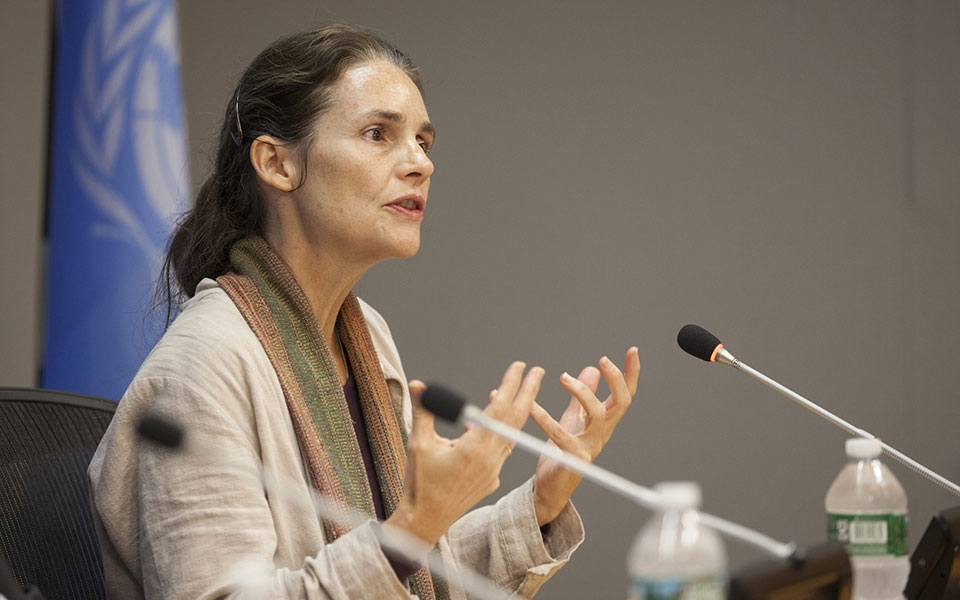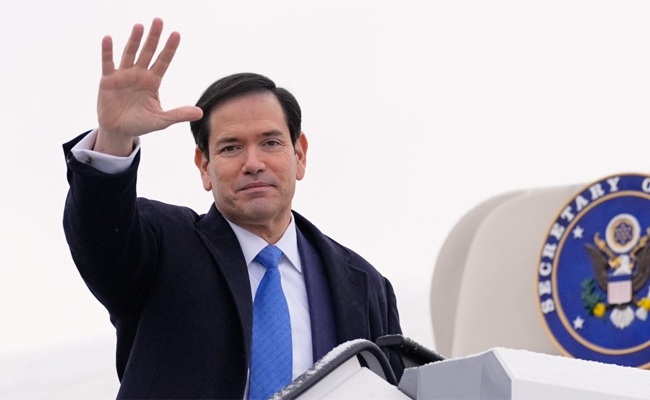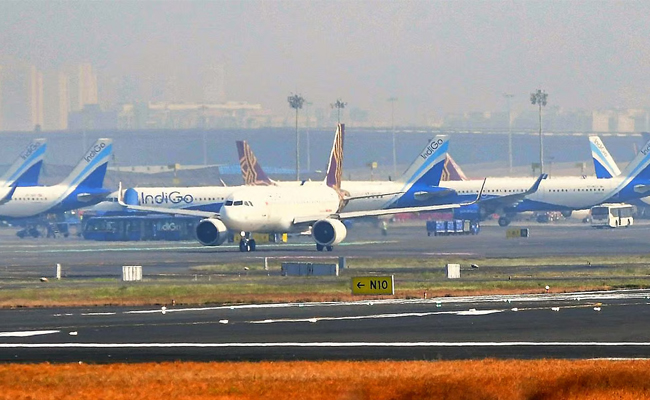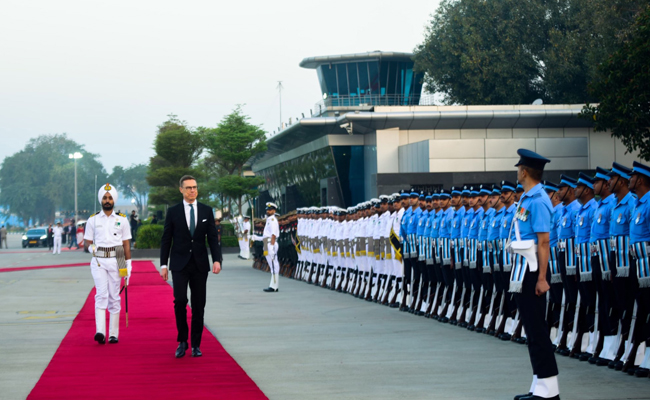United Nations, Sep 21 : While India has taken tremendous strides in combating poverty in the past decade, Muslims, members of the Scheduled Tribes (ST) and Dalits saw the most progress in in reducing the impact of poverty, according to data compiled in a UN project.
The "very positive trend" during the decade between 2005-06 and 2015-16 in India is that "the poorest are catching up", Sabina Alkire, Director of the Oxford Poverty and Human Development Initiative (OPHDI), said on Thursday at the presentation of the 2018 Multidimensional Poverty Index (MPI) here.
The MPI prepared by the UN Development Programme (UNDP) and the OPHDI, takes into account various indicators of development rather than just income and aligns them to the UN Sustainable Development Goals, while serving as a measure of the intensity of poverty felt by different groups.
While ST members were still the poorest group, they have seen the fastest reduction in MPI, as have the Dalits, Alkire said.
Explaining it, Diego Zavaleta Reyles from OPHDI told IANS that the average number of deprivations or "the intensity of their poverty" measured by the MPI fell for these groups even though the proportion of poor people in these categories was relatively the same or unchanged.
Between 2006 and 2016, the MPI of the STs came down from 0.447 to 0.229 even though the percentage had fallen only from 79.8 to 50 during the decade, according to OPHDI data.
During the same period, the MPI of Dalits fell from 0.338 to 0.145 while the percentage of poor came down from 65 to 32.9.
"If we look at the religious groups, the Muslims are the poorest and they again had the fastest reduction in MPI," Alkire said.
While MPI for Muslims was 0.331 in 2006, it fell to 0.144 in 2016, and the percentage of the poor in the community came down from 60.3 per cent to 31.1 per cent.
Nationally, 54.7 per cent of the people in all groups taken together were poor in 2006, but only 27.5 per cent in 2016, and the MPI came down from 0.279 to 0.121, the data show.
In terms of numbers, 271 million people had moved out of poverty during the decade, with the number of poor people coming down 635 million in 2005-06 to 364 million according to the MPI standards.
But "we are seeing a shift of global proportions occurring in India over a ten-year period and that is really encouraging", Alkire said.
India is the only country for which changes of this magnitude are taking place at this time, she added.
Bihar remains the poorest state, but along with other high-poverty states - Jharkhand, Madhya Pradesh, Uttar Pradesh and Chhatisgarh - had the fastest reduction in multi-dimensional poverty, she said.
In spite of the progress, these states still remain the poorest. Among age groups, children, who are still the poorest, saw the fastest reduction in MPI, she said.
Such reduction in poverty among these groups or states did had not happened in India in the earlier periods according to a previous study for the period 1998-1999 to 2005-06, she said.
UNDP Administrator Adam Steiner said that when governments start looking carefully at who the poor are and where they are, the analysis leads to programmes that help the poorest of the poor, whether by ethnicity, religion or geography, and results like those in India can be achieved.
Traditional poverty measures - often calculated by numbers of people who earn less than $1.90 a day - shed light on how little people earn but not on whether or how they experience poverty in their day-to-day lives, according to UNDP.
On the other hand, MPI takes into account health, education and living standards in areas like access to clean water, sanitation, nutrition and primary education, with those lacking in at least a third of these defined as multi-dimensionally poor.
According to the income-based measurement, only 270 million Indians are considered poor but according to the MPI standards a far larger number - 364 million -- were categorised as multi-dimensionally poor in 2016.
Let the Truth be known. If you read VB and like VB, please be a VB Supporter and Help us deliver the Truth to one and all.
Washington: Tensions rose at the US Capitol on Tuesday as lawmakers sought clearer answers from the Trump administration on the objectives, duration and costs of the ongoing military campaign against Iran, even as preparations advanced for votes aimed at curbing the president’s war powers.
Senior officials, including Secretary of State Marco Rubio, briefed members of the House and Senate for a second consecutive day behind closed doors, as reported by the Associated Press. The sessions came ahead of votes on war powers resolutions that would limit President Donald Trump’s authority to continue joint US-Israel operations without congressional approval.
Rubio told reporters that the president acted to prevent Iran from striking first. He rejected suggestions that Washington moved only because Israel was poised to launch its own offensive, saying instead that Trump believed the weekend presented a rare opportunity to act with maximum impact. “There is no way in the world that this terroristic regime was going to get nuclear weapons, not under Donald Trump’s watch,” Rubio said.
ALSO READ: BLR airport sees 34 int'l flight cancellations amid Middle East crisis
The conflict has widened following US and Israeli airstrikes on February 28 that killed Iran’s Supreme Leader, Ayatollah Ali Khamenei. Iran has since launched missile attacks targeting US military bases in the region. At least six American service personnel have died so far.
The administration has indicated that supplemental funding may be required to sustain operations. It added that the concerns among lawmakers about the financial burden and potential for a prolonged engagement has disrupted legislative business, sharpening political divisions at the start of a competitive midterm election cycle.
Associated Press cited Senate Democratic Leader Chuck Schumer’s concerns about what he described as possible “mission creep.” Senator Angus King questioned whether the United States had been drawn into war at Israel’s urging, while Senator Elizabeth Warren asked how the campaign aligned with Trump’s “America First” pledge to avoid extended foreign conflicts.
Defence official Elbridge Colby told senators the president had directed the military to degrade Iran’s missile capabilities and prevent it from acquiring nuclear weapons, stressing that the objective was not nation-building. Trump, speaking separately from the Oval Office, dismissed claims that Israel had forced his decision and suggested the conflict could continue if necessary. He has not ruled out deploying US ground troops.
Senator Richard Blumenthal was quoted by Associated Press as saying that he feared the possibility of American boots on the ground while Republican Senator Markwayne Mullin defended the operation, saying the president had acted decisively.
Uncertainty over Iran’s future leadership has added to concerns, with questions mounting about who might succeed Khamenei as Trump rejected the idea of backing Reza Pahlavi, the exiled crown prince of Iran’s former monarchy. Senate Majority Leader John Thune said the future of Iran should be determined by its people and House Speaker Mike Johnson said the United States would not engage in nation-building.
Lawmakers from both parties also reported a surge in calls from constituents seeking assistance for Americans attempting to leave the region as hostilities intensify.
The US Constitution grants Congress the right to declare war, however presidents have routinely begun military activities without formal declarations. Both houses are anticipated to vote on proposals that would require explicit congressional approval to continue operations. Some members have also argued that if constraints are not imposed, Congress should consider issuing an Authorization for the Use of Military Force to put lawmakers on the record.
Associated Press quoted House Democratic Leader Hakeem Jeffries questioning the rationale for the campaign and saying there would be strong support among Democrats for the resolution. Johnson, however, warned that restricting the president during active combat could pose risks.





